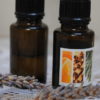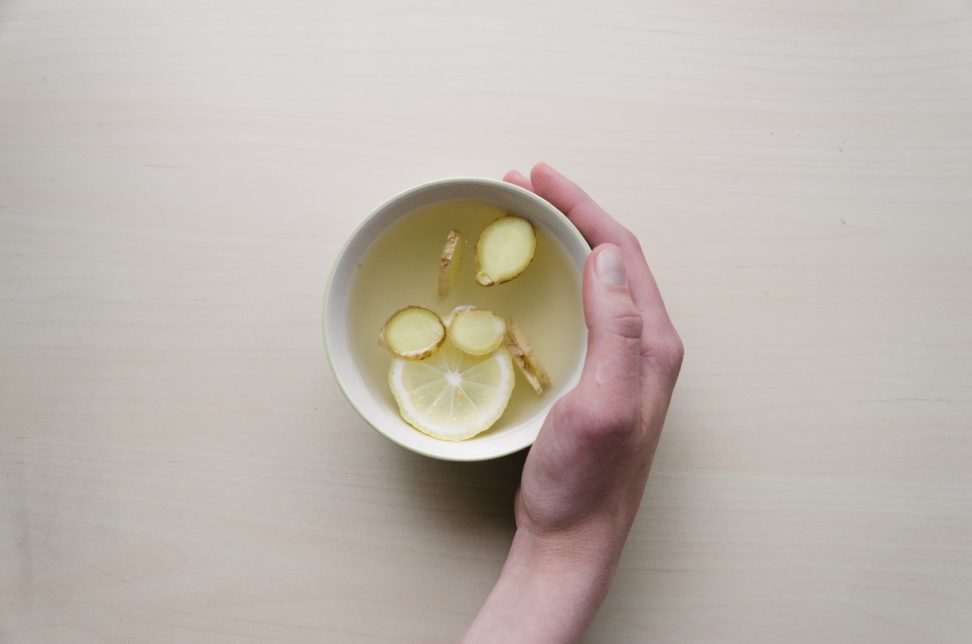Do you eat a big meal and then go run? Probably not. You’d probably stop a short way into the run, winded and gripping your side. Your body doesn’t need to digest when you’re running.
Similarly, your body doesn’t think it needs to digest when you’re mentally running. I was thinking through last month’s blog, and how our flight-or-flight (sympathetic) response induces physiological changes:
When you’re under stress (like imagine you’re that lifeguard hustling to save a person), your flight-or-flight (sympathetic) response ups your heart rate, adrenaline and changes your digestion (like literally stops your digestion), urination, tear and salivate production, defecation, and more.
Your body responds to on-going stressors by shutting down or slowing key functions. Many functions we need for good health! Let’s walk through two tips for switching off the flight-or-flight status and switching over to the relaxed parasympathetic nervous system state so our bodies function with ease in digestion, immunity and more.
1. Replenish by using Food as Fuel:
When you’re stressed your body burns through its vitamins and minerals—and it’s so easy to stress eat high-sugar foods that give us “instant” energy but further deplete those resources, which results in … high sugar = high inflammation = staying in a stressed state. Food can stress our bodies and shift us even farther in a sympathetic state if we are reaching for the wrong foods.
We need to have a method for recharging and regenerating our bodies without overloading on high-sugar foods by …
Picking foods that fuel and sooth:
- Drinking tea can really replenish the body of much needed antioxidants that are spent through stress. It can also supply compounds that actually help with stress. Green tea is the most studied for its calming benefits, however there are a lot of tea’s out there that can support you. Speaking of tea, one of my favorites is the herbal tea, Tulsi Ashwagandha. It’s full of antioxidants and health-supporting ingredients plus it’s very relaxing.
- Healthy fat is a must when going through tough times. Avocados, seeds, nuts, high quality olive oil and olives are powerhouses of healthy fat. Fish is another food packed with healthy fats that help reduce inflammation (aka, stress on the body).
- Lots of veggies are also key. We get our vitamins and minerals from fruits and veggies. When we are burning through those vitamins and minerals from stress, we must replenish them so our body can recover. Learn more:
13 Top Foods that Relax Muscles & Reduce Stress and
Top 9 Foods That Will Help Reduce Stress Levels
Finding a compromise:
- If you really need a dessert pick-me-up, try low-sugar treats that satisfy without building the sugar-stress cycle. Try a Vegan Chocolate Swiss Roll or a Tigernut Flour Berry Crisp. You might also grab a low-sugar bar like JOJO’s Original 70% Dark Chocolate, which I’ve seen at Costco.
- Trade out or cut down on the constant coffee or pop for a cup of tea with antioxidants. You’ll feel the caffeine and your body will use that health value. Also, just drink more water!
2. Make time to rejuvenate and/or rest
Keep calm and carry on happens when we have a plan. Routine, as highlighted last month, reduces stress. And, planning for moments or days of rest are just as important to include in our routine. When we rejuvenate our bodies, our bodies have the resources that we need to endure stress. (Check out the information about HeartMath and breathing exercises from the last blog if you missed them.)
You might not be able to get away for a vacation but you can stay home for a staycation! Planning a day for self care can really rejuvenate your body and mind to handle hard situations. Schedule a massage, read a book, go play with friends. All can build you back up.
Also, what might surprise you, is the effectiveness of exercise in setting the stage for relaxation and rejuvenation. Exercise burns off the excess stressors and cortisol … and sugar! Walking or yoga stretching or bike riding will help reduce the feelings of anxiousness and increase your breathing and oxygen intake and ultimately help you sleep better. And don’t underestimate the rejuvenating properties of sleep!
Quoting from the Sleep.org, “When you’ve exercised, your body wants to recover, and sleep is a good way of doing that. Exercise also provides significant stress relief, which is strongly associated (9) with sleep troubles. Nearly half (10) of adults say stressful thoughts keep them lying awake at night. When you exercise, your brain releases endorphins (11). These chemicals give you that post-exercise high, boosting your mood while reducing stress.” And exercise helps you get more of that much needed sleep.
Think of exercise as a mini vacation that you can add to your weekly or daily routine.
You might say that the precursor to “stay calm and carry on” is learning how to recover and recharge. Try implementing these tips above, and if you have questions, always drop me an email.



![z31[1]](https://simplywholebydevi.com/wp-content/uploads/2018/06/z311-100x100.jpg)












